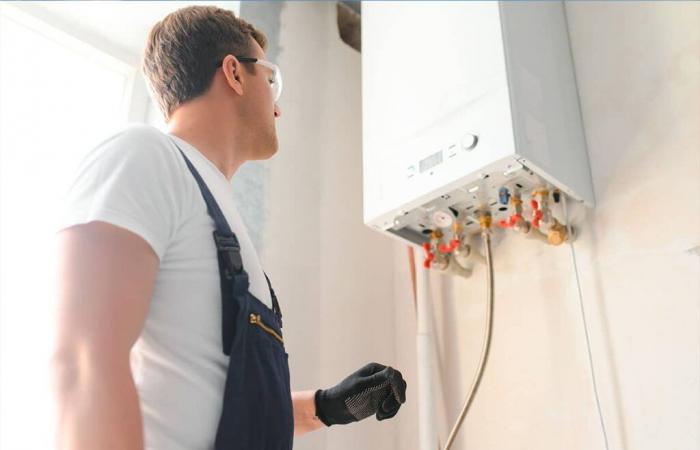At the dawn of 2025, a new tax measure is set to change the domestic heating landscape in France. The VAT rate on very high energy performance (THPE) gas boilers will increase from 5.5% to 10%. This increase is part of a global strategy aimed at encouraging more ecological alternatives and reducing dependence on fossil fuels.
The evolution of taxation on thpe gas boilers
Until now, THPE condensing boilers benefited from an advantageous VAT rate of 5.5%. This measure aimed to promote the adoption of these devices which are more efficient and emit less CO₂ than their predecessors. However, the government has decided to review its position to accelerate the energy transition.
The increase in VAT to 10% pursues two main objectives:
- Gradually reduce the use of fossil fuels
- Encourage consumers to opt for more environmentally friendly heating solutions
This decision aligns with the impacts of the “special law” on pensions and taxes in 2025, illustrating a political desire for profound transformation of our society.
Please note that only THPE boilers are affected by this measure. Hybrid systems, combining gas and renewable energies, could retain the reduced rate of 5.5%.
Financial consequences for households
The increase in VAT will have a direct impact on consumers’ wallets. To illustrate this change, let’s take the example of a THPE boiler whose total cost (material and installation) amounts to €6,000:
| VAT rate | VAT amount | Total cost |
|---|---|---|
| 5.5% (old rate) | 330 € | 6 330 € |
| 10% (new rate) | 600 € | 6 600 € |
This increase of €270 could slow down some households in their boiler replacement project, particularly those with modest incomes. It is crucial to consider this increase in the broader context of the revaluation of the progressive tax scale for 2025, which could partially offset this additional burden for certain households.
Ecological and economical alternatives
Faced with this tax evolution, numerous options are available to consumers wishing to optimize their heating system while reducing their carbon footprint:
Heat pumps (PAC) : These devices, although more expensive to purchase, benefit from numerous financial aid and a reduced VAT rate. Their energy efficiency is actually a solution for the future.
Heating with wood or pellets : Economical and environmentally friendly, this method of heating is experiencing renewed interest. Its often advantageous cost of use allows rapid amortization of the initial investment.
Improving thermal insulation : Even before changing your heating system, reducing heat loss is often the most cost-effective solution. A well-insulated home requires less energy to maintain a pleasant temperature.
It is recommended to have an energy diagnosis carried out before opting for a new heating solution. This approach makes it possible to identify the option best suited to each situation.
Towards a sustainable energy strategy
The increase in VAT on THPE gas boilers calls for broader reflection on our energy choices. Although it may seem restrictive in the short term, this measure encourages a long-term vision that is more respectful of the environment.
Consumers are therefore encouraged to consider sustainable alternatives, such as heat pumps or hybrid systems. These technologies, although initially more expensive, often offer a better return on investment thanks to their greater energy efficiency.
In addition, numerous financial aids exist to facilitate this transition. It is wise to find out about schemes such as MaPrimeRénov’ or energy saving certificates (EEC) which can significantly reduce the cost of energy renovation work.
Finally, it is useful to specify that this tax development is part of a broader context of transformation of our relationship with energy. Like the steps to contest their property tax, citizens are invited to inform themselves and take action to optimize their energy and tax situation.
Ultimately, this VAT increase, although representing an immediate additional cost, could be the catalyst for a transition towards more ecological and economical heating solutions in the long term. It invites everyone to rethink their energy consumption and invest in a more sustainable future.
A reaction? Leave a comment
Did you like this article? Subscribe to our free Newsletter for engaging articles, exclusive content and the latest news.






